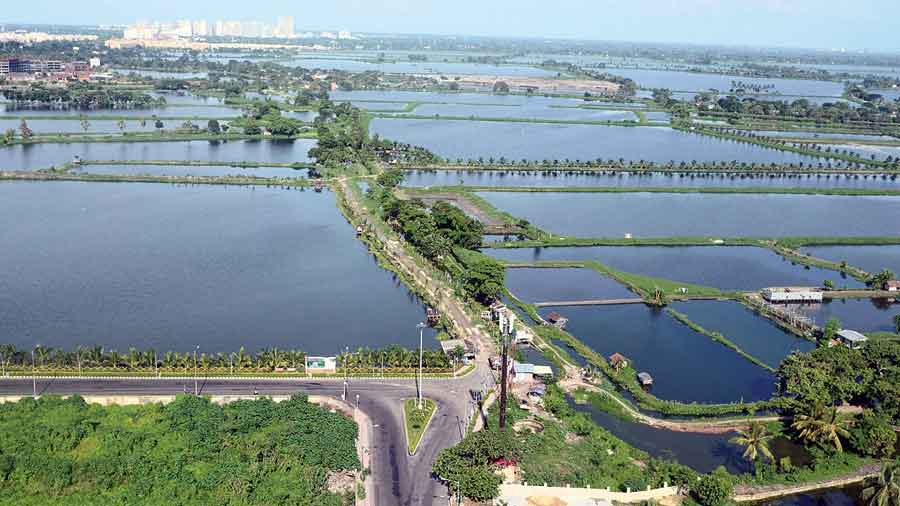The East Kolkata Wetlands are in danger of real estate encroachment. This was the focus of a seminar last week celebrating Water Body Conservation Day and Wetlands Day.
The June 16 event was held at Aikatan and conducted by Paschim Banga Bigyan Mancha.
“The East Kolkata Wetlands not only absorbs carbon dioxide from the atmosphere but also aids pisciculture and supplies water to nearby farmlands. On account of a heavy dose of real estate brought about by Housing and Infrastructure Development Corporation (Hidco) and New Town Kolkata Development Authority (NKDA), the characteristics of the wetlands are deliberately being changed to help both government and private organisations make money,” said environmentalist Pradip Mahapatra.
He reminded the audience that Kolkata is in danger of getting submerged unless the wetlands were saved. “In the 1980s, there were 60,000 or more ponds and other water bodies in and around the wetlands. Now the number has come down to only 2,800 which is alarming,” said Mahapatra.
Agreed pisciculture specialist, Sudhir Sardar. “More than a lakh people are associated with fishery in the wetlands. Most bheris in the area have started drying up as the water was re-directed to the Bagjola Canal,” he said. “The fishermen protested and even went to the police but they were suppressed with threats. Real estate giants wanted to shut the bheris and set up huge complexes in the area after channelling the waters in another direction. That has harmed the livelihood of many and affected the underwater ecosystem of the wetlands and ponds. The government is busy sanctioning municipal plans to kill pisciculture. This has also harmed the farming in the region.”
Environmental activist Tapan Saha recalled his childhood when most houses in south Bengal had ponds and every family wanted their youngest-born to learn swimming quickly so they wouldn’t drown in a neighbourhood pond. “But now we are more concerned about saving the few remaining ponds. We must work closely with communities living in villages as they know how to conserve nature more than city people,” he said.
Social activist Sourav Chakrabarti refused to believe that the growth of real estate was the definition of development for a society. “Development must happen along with protection of the environment. There are realtors who have reduced Adi Ganga to a narrow tunnel to make way for real estate, government agencies have sold an entire hill called Tilabani Hill in Purulia to make way for builders and contractors, water flow into the wetlands has been artificially stopped and the rules meant for wetland management and conservation are flouted openly,” said Chakrabarti. “At this rate, we will run out of ground water in Kolkata, as is happening in so many countries in the world.”
The crowd consisted of more than 150 members of the organising body, who believe that protesting over social media will not be enough. “We need to get into action. We need to organise protests to stop realtors from killing the natural eco-system in the area,” Chakrabarti signed off.
